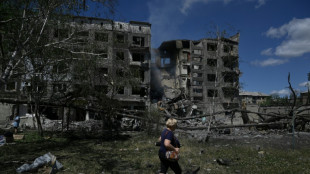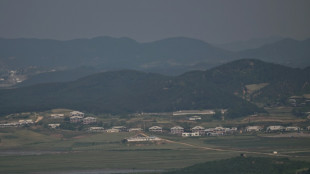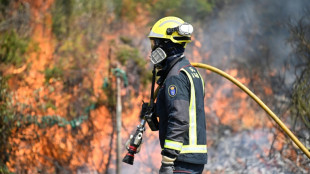
Niger-Benin border standoff deepens as trade collapse bites

Nearly two years after Niger's military seized power and the border with Benin was shut, tensions over security, sovereignty and French influence have hardened into a stand-off throttling trade and paralysing ties between the west African neighbours.
Benin, which denies hosting foreign forces accused of destabilising Niger, claims it has made repeated overtures to ease the blockade, but efforts have failed despite mounting economic pain on both sides of the border.
"Those who are suffering are the people of both countries," Nigerien haulier Ibrahim Abou Koura, who is based in Benin's economic capital Cotonou, said.
General Abdourahamane Tiani has repeatedly accused Benin of harbouring French military bases training jihadists to undermine Niger.
In May, he insisted the border would "remain closed", saying the fight was not with Benin but with French troops he claims are operating from its soil.
The friction since the coup has taken a heavy toll on cross-border trade and travel between the two countries.
"Buses aren't as full. There's not the same number of people," said Abou Koura, in the deserted yard of his compound in Zongo, where he once stored goods bound for major Nigerien cities.
Still, transport workers in Cotonou say some movement persists, with the Niger River -- a natural border -- remaining a busy crossing despite the official closure.
"Goods pass and travellers cross the river to continue their journey by bus on the Niger side," said Alassane Amidou, a resident of Malanville, a city in northeastern Benin.
But for trucks unable to cross by water, perilous detours through jihadist-infested zones in Burkina Faso have become the only option.
"The Niger-Benin corridor is currently the safest, most profitable and shortest route for transporters and businesses," said Gamatie Mahamadou, secretary-general of a consortium of Nigerien truck driver unions, in Niamey.
He called on Niger's military rulers to "immediately normalise relations with Benin", warning that "workers' safety" and "the national economy" are at stake.
- Cautious optimism -
Niger's vital oil exports to Benin's port of Seme-Kpodji resumed in late 2024 via a cross-border pipeline after months of disruption.
Uranium shipments from northern Niger remain stalled, awaiting either a diplomatic thaw or an alternative route.
Benin has denied Niger's claims it is turning a blind eye to any destabilisation attempts and continues to extend an olive branch to Niger.
Former presidents Thomas Boni Yayi and Nicephore Soglo travelled to meet General Tiani a year ago in a failed bid to restore ties.
Beninese Foreign Minister Olushegun Adjadi Bakari in early June said he hoped for "prospects for recovery" provided security conditions are met.
"We are hopeful that this will be resolved quickly ... the blockage is not on Benin's side," he told local media.
"We have to accept the fact that we are not on the same wavelength sometimes... The door remains open."
A new Beninese ambassador may soon be appointed to Niamey, following the quiet February recall of Gildas Agonkan, who had publicly apologised to the Nigerien people "on behalf of all Beninese and the authorities of Benin".
"The apology to the Nigerien people was seen in Cotonou as a diplomatic weakening of the country during this crisis," said Guillaume Moumouni, an international relations expert.
"The next ambassador must be someone of great repute and who knows Niger well enough to inspire trust and respect."
Benin, which maintains it hosts no foreign military bases, has seen a surge in jihadist attacks this year and laments poor cooperation with neighbouring Sahel states also affected.
"Not being able to talk directly with its neighbours increases Benin's vulnerability," said Lassina Diarra, head of the Strategic Research Institute of the International Counter-Terrorism Academy in Ivory Coast.
Benin is set to elect a new president in April 2026, which could be a chance to restart "serious negotiations", Moumouni said.
S.Jackson--SFF

 London
London

 Manchester
Manchester
 Glasgow
Glasgow
 Dublin
Dublin
 Belfast
Belfast
 Washington
Washington
 Denver
Denver
 Atlanta
Atlanta
 Dallas
Dallas
 Houston Texas
Houston Texas
 New Orleans
New Orleans
 El Paso
El Paso
 Phoenix
Phoenix
 Los Angeles
Los Angeles



